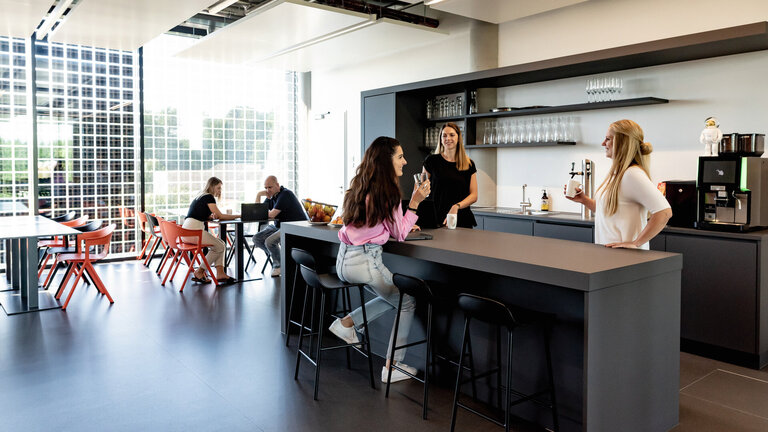The working environment is changing, as shown by a survey conducted by Drees & Sommer. 230 experts from the fields of IT, real estate and human resources and around 20 sectors participated in this survey. While the office has lost its monopoly as the primary place of work due to the increase in mobile working, it is nevertheless more important than ever: the office has to handle anything that cannot be done remotely: from ‘A’ as ‘after-work hours’ through ‘C’ like ‘chance meeting’ to ‘Z’ like ‘zero business time’. Office space must adapt to users’ changing requirements, with regard to both design and floor space requirements. Companies will need a clear strategy to make progress in the ever-changing world of work.
By this year at the latest, it has become very apparent that remote working from home and mobile working are here to stay. This is what around 93 percent of those surveyed think. While companies in Germany tended to approach this with caution pre-Covid, the pandemic has shaken the culture of on-site attendance to the core, while also paving the way for modern, decentralized patterns of work in many industries. Good news. ‘The office is certainly not dead. Going forward, it will merely play a different role in everyday work than it did before the pandemic,’ commented Sven Mylius, senior manager and expert for New Work concepts at Drees & Sommer SE.
Teamwork together with both formal and informal communication will become more prominent. In short: people go to the office because of people. Almost half of respondents see this trend as a change compared to the pre-pandemic position. ‘Offices now have to adapt to the new requirements, for example by providing creative areas and project rooms, communication space, and recreational facilities. This also requires a new approach to working methods, work locations and structures, including a rethink in corporate management,’ explained Drees & Sommer’s New Work expert.
Find more information in our press release.
